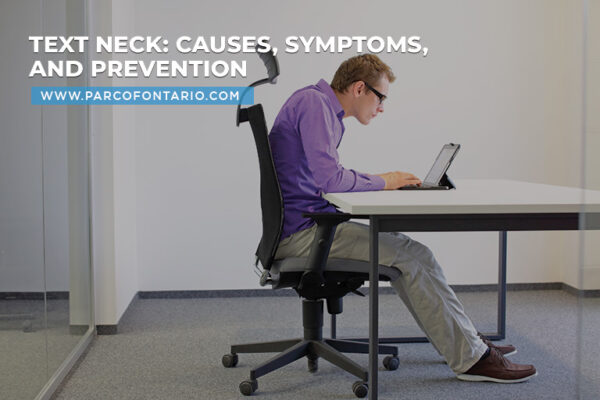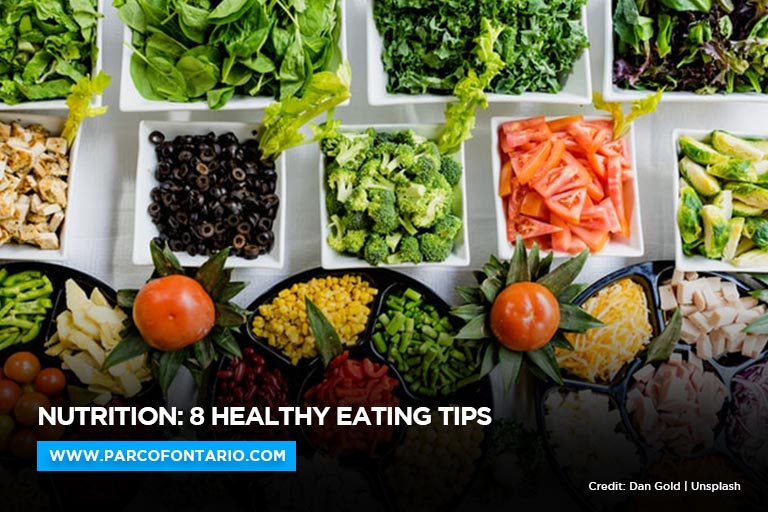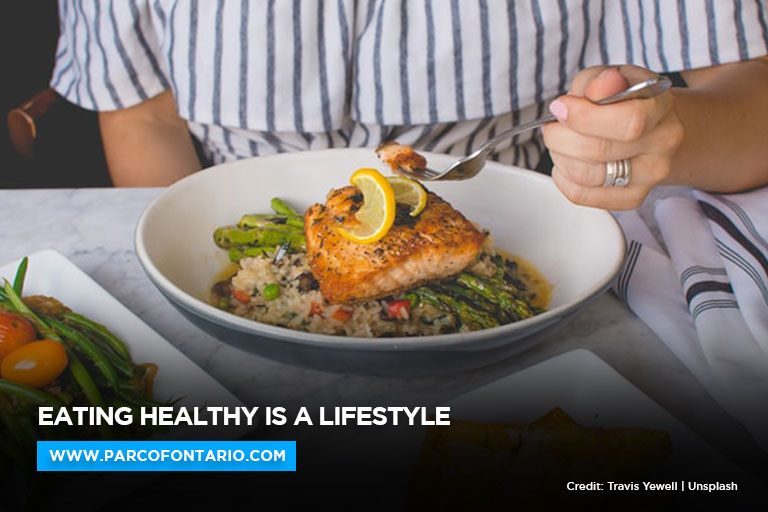
Text Neck: Causes, Symptoms, and Prevention
Many of us spend long hours hunching over our electronic mobile devices and laptops. As we spend more time texting, browsing social media, and reading on our devices, this constant downward gaze…
Read More

The road to a healthy you does not happen in a single day. It sometimes requires a shift in lifestyle and dietary choices. Eating is such an important part of people’s lives that even the slightest alteration can be life-changing. By knowing why nutrition is important and what healthy food you should eat, you can work your way to a healthier you.
Here are some healthy eating and lifestyle tips to get you started.

Did you know that there are hormones that regulate your appetite and notify you when you’re full? The hormone leptin, the “satiety hormone”, is responsible for making you feel full, telling the body to stop eating. The brain, however, does not receive this signal until 20 minutes after it is released. As a result, the faster you eat, the more likely you are of eating more than you need.
You give your brain the chance to get the signal and the time it needs to recognize that you’re full by eating slower. People who eat significantly faster are also more likely to have a higher BMI than those who eat much more slowly. In addition, eating slowly allows you to chew your meal more thoroughly, which has been related to better weight control.
Processed food contains excessive amounts of salt, sugar, and oil. Canned food, chips, freezer dinners, and fast food are examples of highly processed foods. Because these foods are widely available and take less time to prepare, they are a popular food of choice. Unfortunately, people who eat a diet high in processed foods are more likely to develop type 2 diabetes, heart disease, and other health problems, according to studies.
When you’re thirsty, instead of reaching for the sugary drinks you crave, drink water. Dehydration can produce fatigue and headaches, and it can sometimes be misinterpreted as hunger. Water, in fact, can aid digestion, allowing the body to absorb the nutrients.
Frying is a common method of cooking which is often used by homes, fast food chains, and restaurants to quickly prepare food. Unfortunately, research has found that fried foods contain potentially harmful substances that have been related to health problems such as cancer and heart disease. To ensure that your food is healthy and free of dangerous contaminants, choose cooking methods such as baking, simmering, or slow-cooking.
When you cook at home, you have complete control over the food you prepare. You get to choose the ingredients and the cooking methods. If you want to buy food outside, for example, fast food may be your only alternative. As a result, make sure you’re eating properly by preparing your own meals. It’s also more cost-effective. You get more control over what you eat if you are less concerned about your finances.
Numerous studies have shown that the amount of food people eat is influenced by the size of the plate that they use. When you use a larger plate, you’ll end up piling your food because your usual serving might seem too little. While the reverse happens when you eat from smaller plates. This is one way of tricking your brain into thinking that you’re eating enough.
If you had to choose between a caramel latte or a cup of black coffee? Get the latter. While you may have heard that coffee is bad for your health or can trigger palpitations or anxiousness, this isn’t the case at all. In fact, according to many studies, drinking 4 cups of black coffee per day is in the safe range for most healthy adults. Black coffee is high in antioxidants, which have been linked to a lower risk of cancer. It has also been shown to lower the risk of developing other diseases like diabetes, liver cirrhosis, and Alzheimer’s disease.
If you’re not a fan of vegetables, don’t worry; this aversion to vegetables is more common than you think. However, because vegetables are such an important part of a balanced diet, making sure you get the right quantity is crucial. One way to achieve this is to consume them first when you’re hungry. You’re more likely to eat the ones you like first and skip the vegetables if you eat them last or with something else, such as a steak. So, eat your vegetables first before going on to your main dishes. Serve them with fresh vegetable salads as an appetizer.

Eating healthily can be a challenging and time-consuming task. Some people find the transition difficult. Always be aware of how you and your body are feeling. Take it one step at a time and don’t rush the process. Before you jump into the latest diet plan craze, do your homework first. It’s important to remember that this isn’t about dieting. It’s all about eating well. You’ll have to work on it over time because it’s a lifestyle change.
Also, depending on your circumstances, consider consulting a specialist for assistance with a tailored meal or diet plan. At the Physiotherapy and Rehabilitation Centres of Ontario, we’re always ready and open to listen and help you. For your nutrition needs or questions in Oshawa, call 905.579.9938 or email info@oshawaphysio.com. Our team of physiotherapists can help you determine the best diet plan to go along with your treatment.